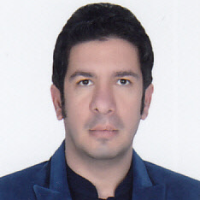Urban Subaltern Areas and Residents' Narrative of Providing Services Water and Wastewater Company (Institutional Ethnography of Urban Subaltern of Sanandaj City)
Current study seeks to present a narrative of the residents of the suburbs of Sanandaj on the provision of services and urban facilities. This was in contrast to the narratives of the Water and Wastewater Company's experts and statistics, documentation and information were posted on the company's website. The underlying assumption of this study revolves around the fact that suburbs lack adequate facilities and services and have been neglected. To this end, we have used sustainable urban development approaches, urban regeneration and quality of life to explain and change this. With regard to the subject and purpose of the study, we used the institutional ethnographic method by which the researcher seeks to expose the status quo and then provide strategies for changing the status quo. Therefore, data were gathered through theoretical, purposeful sampling with maximum diversity and semi-structured interviews until theoretical saturation with 20 subscribers and 7 experts of Kurdistan Water and Wastewater Company, as well as statistics and relevant documents were collected. The information collected was discussed in terms of concepts, primary and secondary categories. Primary categories were conflicting secondary services, quality of technical management, poor technical management, lack of coordination of events, lack of inter-organizational collaboration, inappropriate network infrastructure, and lack of customer-centricity, uncertainties, and overheads. They were drawn and extracted from these categories; the nuclear category of structural and institutional exclusion and the lack of coordination in the implementation and ambiguities of the bill. The results indicate a lack of sustainable urban development in the marginal areas and consequently a decline in the quality of life. This is reflected in the structural and institutional challenges faced by the suburbs in terms of their utilization of urban facilities. The lack of coordination in the implementation and ambiguities of the water and wastewater company has aggravated the process and caused underdevelopment issues. Therefore, what is needed on the outskirts of Sanandaj is the re-creation of a city that is making changes to the development of water and wastewater network infrastructure, maintaining and protecting the network, and transparency in customer billing and promotion, which is the quantity and quality of service provided in these areas.
-
Integration of the Rural Community into the Market Economy (The Place of Rural Tourists in Hawraman)
, Hossein Daneshmehr *
Journal of Community Development, -
Contradiction of Opportunity/Challenge Development: Sustainable Management of Water Resources in Kurdistan Province in Institutional and Public Conflicts
Hossein Daneshmehr *,
Journal of Water & Wastewater,


